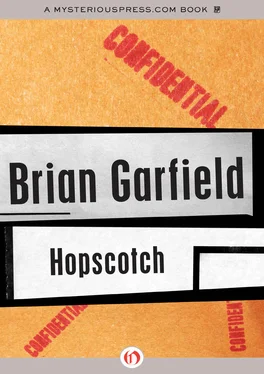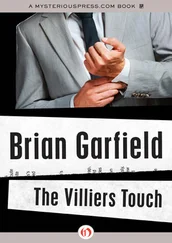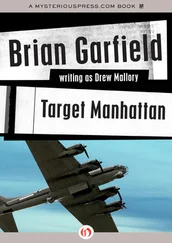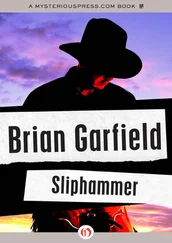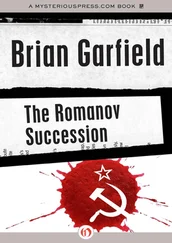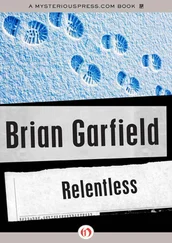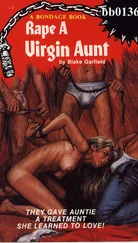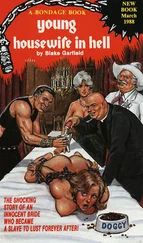Brian Garfield - Hopscotch
Здесь есть возможность читать онлайн «Brian Garfield - Hopscotch» весь текст электронной книги совершенно бесплатно (целиком полную версию без сокращений). В некоторых случаях можно слушать аудио, скачать через торрент в формате fb2 и присутствует краткое содержание. Жанр: Шпионский детектив, на английском языке. Описание произведения, (предисловие) а так же отзывы посетителей доступны на портале библиотеки ЛибКат.
- Название:Hopscotch
- Автор:
- Жанр:
- Год:неизвестен
- ISBN:нет данных
- Рейтинг книги:3 / 5. Голосов: 1
-
Избранное:Добавить в избранное
- Отзывы:
-
Ваша оценка:
- 60
- 1
- 2
- 3
- 4
- 5
Hopscotch: краткое содержание, описание и аннотация
Предлагаем к чтению аннотацию, описание, краткое содержание или предисловие (зависит от того, что написал сам автор книги «Hopscotch»). Если вы не нашли необходимую информацию о книге — напишите в комментариях, мы постараемся отыскать её.
Hopscotch — читать онлайн бесплатно полную книгу (весь текст) целиком
Ниже представлен текст книги, разбитый по страницам. Система сохранения места последней прочитанной страницы, позволяет с удобством читать онлайн бесплатно книгу «Hopscotch», без необходимости каждый раз заново искать на чём Вы остановились. Поставьте закладку, и сможете в любой момент перейти на страницу, на которой закончили чтение.
Интервал:
Закладка:
Kendig bought a round. Liddell said, “Look at this suit-threadbare. You wouldn’t believe this was a guy who used to travel twenty thousand miles on vacation every year. Hell we hit Japan one year and Tanzania the next. You asked where the money went-that’s where it went. We figured we’d enjoy it while we were still young enough to. It was a good thing we did-otherwise my wife would’ve taken it anyway when she left. I wish she’d marry the son of a bitch.”
Kendig said, “Any place around here where you can get a decent meal?”
“There’s an inn up at Washington Crossing that used to be pretty good. You might try it.”
“I’ll treat us both,” Kendig said. “I’ve got a business proposition for you.”
The steaks weren’t bad. Kendig did most, of the talking during the meal. Afterward he tasted the coffee. Liddell said, “I’m sure to be arrested.”
“Yes. Arrested and held for questioning. But after they’ve milked you they’ll let you go. You won’t have committed any crime.”
“What about the phony credit cards?”
“You only use them for identification. You don’t charge anything on them. Of course you can try if you want but I wouldn’t recommend it. You know they’re going to arrest you anyway and if you’ve used the credit cards they can have you up for fraud. Other than that you’re clean and they’ve got to let you go.”
“But what do I tell them when they start bringing out the rubber hoses?”
“Tell them the truth.”
“What?”
“Tell them the absolute truth.”
Liddell squinted at him. “Christ, they’d never believe it.”
“They’ll believe it all right. I promise you that.”
“And then they’ll let me go?”
“Yes.”
“I don’t get it.”
“You’re only a decoy, they’ll understand that. They’ll get mad but they’ll be mad at me, not at you.”
“What if they decide to shoot me first and ask questions afterward?”
“They won’t. They’re not that mad yet. They’ll want to question you first. As soon as they do that they’ll know they’ve got the wrong man. They won’t have any reason to harm you.”
“It’s the craziest thing I ever heard,” Liddell said, “but I swear to God I’m tempted to do it. I really am.”
“What can you lose? It’s a lot of money.”
Writing the book was harder than he had dreamed it could be. Early on during training and apprenticeship he’d had to learn the patience of the stakeout but he had never developed the habit of it: he knew himself to be a neurotic man and because he couldn’t afford to make careless mistakes he’d forced himself to be diligent but even so, after all the years, he still was thorough only by training, not by instinct. After the first two days’ typing-sixteen pages rough-most of the fun drained out of it and it became sheer drudgery and he found any excuse to avoid the typewriter for five minutes or two hours.
The third day was Wednesday and on that September afternoon he gave up after the seventh typed page and went outside into the damp dazzling heat. The pine forest was thick with the smell of resin and faintly he could hear the rush of the dark river down below. The broken screen door slapped shut behind him.
The house was a Victorian ruin, a little remaining white paint peeling from its grey clapboards. The yard was high weeds across to the dilapidated barn with its inevitable accouterments: the rusty wreckages of a cultivator and a 1953 DeSoto, the flies buzzing, dragonflies beating from point to point, butterflies jazzing amid the wild azaleas and the aged chinaberry trees.
He got in the battered Pontiac and drove slowly, rutting down the overgrown track, bottoming a couple of times before he tipped it onto the county road scraping the tail pipe. He didn’t push it past forty miles an hour because for one thing he wasn’t sure the car would take it and for another there was a sheriff’s cruiser that made a practice of lying in wait behind the Dr Pepper billboard a mile west of his turnoff.
The road two-laned through the pines, here and there a clearing with its lopsided grey shack and its tumbledown barn painted with the attractions of Coca-Cola and Jesus and Prince Albert tobacco. Every yard was an auto graveyard. The blacktop for a while went curling along the steep slope of the riverbank and he had glimpses of white water through the dusky boles. The occasional side road would lead back to a tumbledown cemetery or a sharecropper outfit or a moonshine still. Insects crashed into the windshield, leaving smears. He switched on the radio and got the tag end of Waylon Jennings singing “Not Comin’ Home to You” and then the announcer came on cheerfully, stumbling over basic words. He twisted the dial, driving left-handed, until he picked up the weak fringe signal of an Atlanta station and went on down the road accompanied by Tchaikovsky.
The edge of town grew uncertainly from weeds: eyeless shacks, cluttered lots, rusty corrugated lean-to roofs. Fat women in cotton and old men in dungarees sat on sagging porches.
He had to be in town today but he was two hours early and his weakness annoyed him; it had been a stupid lapse. But there was no point going back now; it would take forty minutes each way and that wouldn’t leave time for any work before he’d have to make the trip again. He parked aslant in front of the country store, racking it between a dusty Cadillac and a dented Ford pickup.
The shade porch supported four hookwormed backwoods folk who stood around with their hands in their back pockets, their heads covered by old straw hats that had turned an uneven brown. They watched him with lizard eyes. When he got out of the car the sun drew the sweat out of him. He climbed the porch and gave them his grave nod-it was returned unblinkingly by all four-and tramped inside.
A huge ceiling fan revolved slowly, stirring the heat; the place was perfectly preserved, a relic of forty years ago, the few unshelved patches of wall crowded with faded photos of forgotten pugilistic champions and rifle meets. There was even a sody-cracker barrel by the fountain. The proprietor went by the name of Leroy; he had the suspicious face of mountain inbreeding and his belly made a perilous arc over the waistband of his beltless Levi’s. “How do, Mr. Hannaway.”
“Sure is a hot one,” Kendig said. “Draw me a beer.”
He was representing himself to be a writer who’d come into the piney woods in search of solitude to finish a book. He’d let it drop that it was a book about fishing the Arkansas River-a topic he’d chosen because he’d once used up the better part of a two-week vacation flatboating and fishing out of Fort Smith at the insistence of Joe Cutter. It had taught him he despised fishing but it had also taught him the lingo and enough local color to bluff out any questions that might be asked. Not many were likely to be asked; he’d picked the deep South to go to ground because it was a country of close-mouthed xenophobia. But it was also the most cheerless land he’d ever entered and it was already on his nerves.
He drank his beer in silence; then he bought a newspaper and a magazine and sat at the counter over them and gnawed on a chicken-fried steak and cornbread. It had been a slow day for news; a school-bus wreck had made the headlines. He read the paper and the magazine from cover to cover and finally it was five minutes to five and he finished his third beer and went outside and hung around the phone booth pretending to look up a number in his pocket notebook until it was 4:59; then he stepped into the booth and made the call.
The number was that of a public phone in a booth in the lobby of the Pan Am Building in New York. It rang only once before it was picked up and the operator said, “Please deposit eighty-five cents for the first three minutes.”
Читать дальшеИнтервал:
Закладка:
Похожие книги на «Hopscotch»
Представляем Вашему вниманию похожие книги на «Hopscotch» списком для выбора. Мы отобрали схожую по названию и смыслу литературу в надежде предоставить читателям больше вариантов отыскать новые, интересные, ещё непрочитанные произведения.
Обсуждение, отзывы о книге «Hopscotch» и просто собственные мнения читателей. Оставьте ваши комментарии, напишите, что Вы думаете о произведении, его смысле или главных героях. Укажите что конкретно понравилось, а что нет, и почему Вы так считаете.
